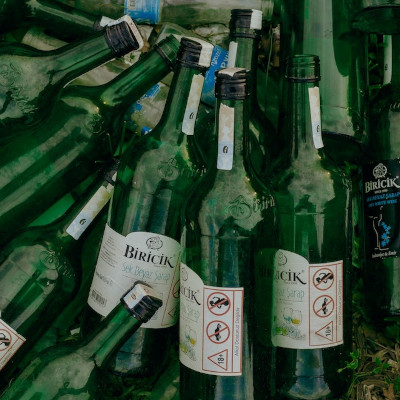
How Long Does Alcohol Stay In Your System?
If you have a substance test coming up that includes alcohol, you’ll need to plan ahead to make sure your alcohol use doesn’t negatively impact your future. How long does alcohol stay in your system? Keep reading to learn more.
Table of Contents:
Alcohol intoxication
The effects of alcohol can be felt in a matter of minutes, depending on a number of factors. Alcohol affects a number of body systems, so symptoms that can indicate someone is intoxicated can vary, including:
- Euphoria or friendliness
- Rage or aggression
- Poor judgment or loss of inhibitions
- Impaired walking or loss of coordination
- Slurred speech or slowed reaction time

Although moderate drinking on occasion may not seriously impact your health, heavy alcohol consumption over long periods of time adds up, taking a serious toll on the body. Examples of conditions resulting from chronic alcohol consumption include:
- Malnourishment, vitamin deficiencies, liver disease, and pancreatitis
- Multiple forms of cancer
- Gastrointestinal problems and ulcers
- Heart disease and stroke
- Brain damage and immune system dysfunction
It’s important to note that another health aspect to consider is risk of accident and injury while intoxicated. Alcohol consumption is frequently connected to car crashes, domestic violence, falls, occupational injuries, drowning, homicide, and suicide. There is no set amount you can drink risk free, nor is there a way to know when and to what degree someone may be harmed by heavy alcohol consumption.
How long does alcohol remain in your system?
Alcohol is measured based on Blood Alcohol Concentration (BAC) which detects the ratio of alcohol to water in your blood. The body will metabolize alcohol at a constant rate, but how much and how quickly it does can vary greatly based on several factors, including:
- Age, weight, biological sex, and overall health
- Whether you have consumed any medications or other substances
- The last time you have eaten
- The amount of alcohol you consume, and whether there was already alcohol in your system

The detection window of alcohol – how long will I test positive?
Tests for substances in the body have a detection window – meaning how long there is enough of a substance in the body to trigger a positive test result. The detection window of alcohol broken down by test type is:
Urine tests
There are different types of urine tests; the most common types have a detection window of 12-48 hours. More advanced tests can detect alcohol in urine up to 80 hours after your last drink.
Breath test
A breathalyzer can detect alcohol for up to 24 hours.
Blood test
Blood tests can detect alcohol for up to 12 hours.
Hair follicle test
These tests can detect alcohol or other substances for up to 90 days.
Cutting down on drinking – how to detox safely
If you regularly consume alcohol and make the decision to stop, it’s likely that you’ll experience withdrawal symptoms. The severity of symptoms depends on how much, how often, and how long you’ve been drinking, as well as whether you have detoxed previously. Detox symptoms typically stop 4-5 days after your last drink. Typical withdrawal symptoms include:
- Anxiety and irritability
- Rapid heart rate and sweating
- Nausea and tremors
People who have other medical conditions, who have consumed alcohol and/or other substances heavily, and who are older at the time of detox are especially at risk of Delirium Tremens (DTs), which are severe alcohol withdrawal complications. Signs you are experiencing DTs are:
- Hallucinations, paranoia, and illusions
- High body temperature
- Seizures
Medically managed detox
While it may seem safe to detox at home with DIY remedies, it’s best to consult a doctor before beginning the process.
A doctor can examine you and create a plan to help you detox safely based on your overall health and how much you drink. Doctors can also give medications and supplements that can reduce the severity of alcohol detox symptoms. Typically, medications are used to reduce the likelihood of experiencing seizures during the detox process.
Elite Home Detox – A Path To Sobriety Built Around You
If you want the comfort and safety of medically managed detox, but a clinic won’t work for you, consider Elite Home Detox. We offer in-home detox and recovery services for drug and alcohol addiction. Our experts will meet you at home to build a detox and recovery plan that feels right.
During detox, a medical professional will stay with you in your home to monitor your progress and ensure you are as safe and comfortable as possible. Once detox is complete, our counselors and dedicated care coordinators can help you stay on track with your path to sobriety.
We offer a discrete, customized alternative to clinics that offer one-size-fits-all treatments. With Elite Home Detox, you can learn to deal with triggers in real time with the help and support of experts who understand. We know you have more questions, and we’re ready to help. Reach out to us today to get the answers you need to start your journey.
Related:
- Drinking Alcohol While Taking Medication: All The Dos And Don’ts
- How Long Does Alcohol Stay In Your Blood And Other Questions, Answered
- What Are The Long-Term Effects Of Fetal Alcohol Syndrome In An Adult?
- Alcoholic Nose: Why It Appears & How To Treat It
- What Percentage Of College Sexual Assaults Involve Alcohol?
- Is Alcoholism A Disease, Addiction, Or Disorder?
- The Beginner’s Guide To Alcohol Detox
- Learn The Signs And Symptoms Of Alcohol Withdrawal
- In-Home Detox for Alcohol Addiction



 Harsh Brar is a Board Certified Family Nurse Practitioner specializing in addiction medicine and pain management. He holds a Master of Science in Nursing from Samuel Merritt University and ensures all Elite Home Detox clinical content aligns with current medical safety standards.
Harsh Brar is a Board Certified Family Nurse Practitioner specializing in addiction medicine and pain management. He holds a Master of Science in Nursing from Samuel Merritt University and ensures all Elite Home Detox clinical content aligns with current medical safety standards.